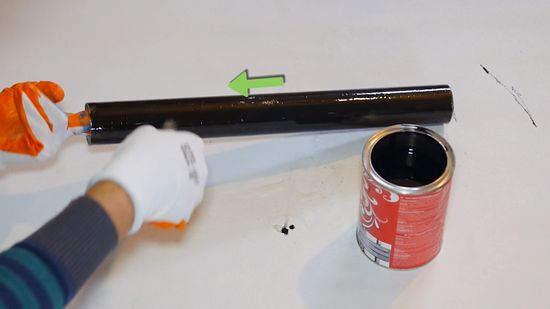Industrial coating is even more bent to aesthetic functionality and commercial painting need to plan before executing. In most instances, the industrial painters are working back-end areas wherein only the technical employees, partners, suppliers’ and business owners access. They aren’t the places styled to impress, but instead make sure that the goods stored in machinery, warehouses and apparatus to use are all well painted to properly function, to withstand harsh conditions, and get durable for the goodness of the products. The industrial paints sometimes will not be that appealing to our eyes. Industrial painters may specialize in the machining, painting or automotive painting or it will depend on the kind of industrial paint desired.
And because the industrial paint is even more protective to the aesthetic, it is usually composed of coatings like epoxy, polyurethane, fluoropolymer, and moisture cure urethane. These coatings contained long-chain polymer molecule. When these molecules bonded with steel and concrete, the reactive molecules such as alcohol and acid are lock to create that flexible, tough film.
The industrial coatings may also be done by using the chain growth, coatings such as polyvinyl chloride or PVC. The PVC is composed of monomers that form and bond the tough triple bond of polymer chains. The industrial painting may also be done by using coalescence-foot films like the latex.

In the industrial standards, the industrial paint may be divided into 3 types of coatings:
- Inorganic Coating – it uses inorganic materials like the ceramic and porcelain zinc.
- Metallic Coating– it commonly uses the galvanized steel that is corrosion-resistant.
- Organic coating – it uses organic fluoropolymers like Polyurethane, Polyester, and Plastisol.
However, the inorganic and the organic coating may be used mutually with the mix of additives. Solvent and pigment additives help in the application and the curing process. Some of the additives are essential in the high heat surroundings for fire prevention while some are fire resistant.
Some of the applications in the industrial areas of the industrial paints are:
- Can coatings – the can paints help in preventing the can from having a reaction to the inside contents of a metal can. From outside of the can, a paint completed is for the aesthetic purposes.
- Marine coatings – ferries, oil rigs, marine machinery, and ships utilize industrial coating for the anti-fouling reasons and anti-corrosion because of the sea salts.
- Protective coatings and maintenance – these coatings are being applied to steel structure such as piping, petroleum and chemical plant, bridges, and some other places which are prone to the wear and tear with high corrosion too.
Remember that with the information provided above, the best choice of paint for your business will always rely on the kind of business that you run. For example, if your own business involves handling of consumers or having an administrative office, there are best commercial painting answers within your area that are in service for years now. Furthermore, there are also contractors that offer industrial painting answers for manufacturing businesses, which need heat resistant, resistant to abuse of paintings and durability.
